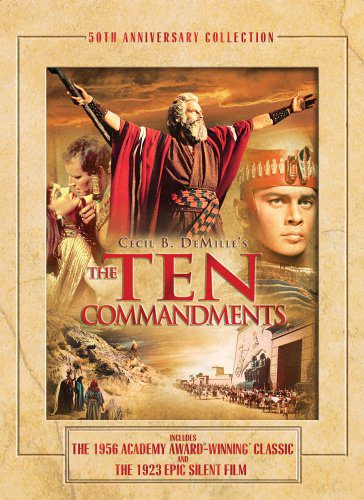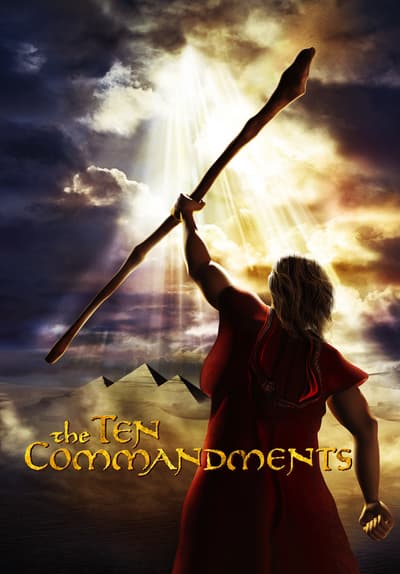

Dan runs off with an equally heathen young woman (Leatrice Joy) and leaves his mother to stew with her remaining faithful son, John (Richard Dix). Mother McTavish (Edythe Chapman) is a Christian killjoy vexed by her irreverently irreligious son Dan (Rod La Rocque) who has no use for God or His laws. That second half jumps to then-modern 1923 America and the story of the McTavish family. It then follows through the rest of the story but finishes before the film is halfway over. It skips over the whole “raised as a prince of Egypt” thing and even the first nine plagues to start with a rather hobo Santa-like Moses (Theodore Roberts) warning Pharaoh Ramses (Charles de Rochfort) of the final, terrible judgment of God. What you might not guess is that only the first hour or so of it deals with the story of Moses. The 1923 version of “The Ten Commandments” is, as you might guess, a black-and-white silent movie. You just know this is how Donald Trump sees himself in The White House.

What follows next in The Bible seems to contradict one of those Commandments, so in the movies we instead get a little wrath of God to punish the faithless Israelites. Left behind, the Hebrews fall into debauchery and idol worship, only to be caught short when Moses finally returns bearing The Ten Commandments. Sinai, where Moses goes up the mountain to receive God’s law. That way out does not extend to the Egyptians, who find the parted waters closing up over them. But just after letting them go, Pharaoh pursued them with his army and God has to part the Red Sea to give his chosen people a way out. Then one final plague killed the firstborn of all Egypt, even the firstborn of Pharaoh, and finally the Hebrews were freed.
The ten commandments movie 2007 free#
Pharaoh would have none of it though, even as God visited plague after plague upon his people, and refused to free the Hebrew slaves. When his Hebrew origins are revealed, Moses the character of cinema is forced out of Egypt and goes to dwell in the land of Midian until the God of Abraham and Isaac commands him to return and lead the Hebrews out of bondage and to a land flowing with milk and honey. Though The Bible never specifically states this, DeMille in 1956 pretty much crystalized in the public consciousness the idea that Moses’ ethnic identity was kept secret from everyone, including himself. And here’s where we take a little dramatic license. To save his life, young Moses was set adrift in a basket on the river Nile, to be found by one of the pharaoh’s daughters and raised as a prince of Egypt.

According to The Bible, at a time when pharaohs ruled Egypt thousands of years ago, a decree was sent out to kill all newborn Hebrews to foil the prophecy of a deliverer who would free his people from their bonds of slavery. “The Ten Commandments” (1956) vs “Exodus: Gods and Kings” (2014) in KIMT’s Weekend Yahweh Throwdown! And at the risk of spoiling things, the third time was definitely NOT the charm.Įven if you’re Hindi, Muslim or Wiccan, you probably know tale unless you’ve literally had no exposure to Western culture. Yes, it’s The “Ten Commandments” (1923) vs. In 2014, Ridley Scott retells the story of Moses and the Jews in Egypt as a way to work out his own religious hang ups. In 1956, DeMille remade that film because he saw his civilization threatened by a force of evil. DeMille made a movie about the problems he saw corrupting his society. Giving Your Best Nonprofit of the Month.


 0 kommentar(er)
0 kommentar(er)
